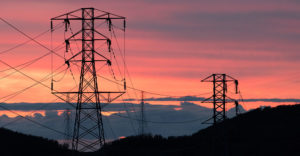
Lexicographer Erin McKean gave a TED talk in 2007 called “The Joy of Lexicography,” in which she pointed out the limitations of print dictionaries. After that talk, she decided to make her vision of a new kind of dictionary a reality. Thus was born Wordnik.
“Our mission with Wordnik is to put all the words in the dictionary, and show as much data as we can for any word someone is interested in,” McKean, the founder of Wordnik, told TechNewsWorld.
A Word’s Worth
Wordnik isn’t just about definitions, though it offers plenty of those. Rather, it provides an entire ecosystem around each word — synonyms, antonyms, hypernyms, hyponyms, Flickr pictures, tweets, wordmaps, example sentences, and statistics — such as a word’s Scrabble score.
“With Wordnik we want to empower people to draw their own conclusions about whether a word is worth using — does it suit their needs? — rather than just [giving an] ‘is it in the dictionary?’ answer,” explained McKean.
Browsing Wordnik doesn’t have to be solitary activity, either, since it offers opportunities to connect with other word lovers.
“Wordnik’s community page is a great way to get a sense of Wordnik,” said McKean. “You’ll see the latest comments, the most recently listed and loved words, and the most recently created lists. Our word of the day is very popular — we choose deliberately obscure words to delight dedicated logophiles.”
The philosophy behind Wordnik is that language is living, breathing and constantly changing, and that dictionaries need to reflect that reality.
“I think we’re now moving more and more towards the realization that simple inclusion or exclusion in a dictionary is not the measure of a word’s worth to the language any more,” said McKean. “We need more nuanced and three-dimensional pictures of a word’s use and context, and that’s what Wordnik is trying to provide.”
A site like Wordnik that is part-dictionary, part-search engine, and part-community forum very well might point to the future of online and electronic dictionaries.
“The dictionary of the future will be omnipresent [and] context-sensitive,” said McKean. [It will] learn your preferences to present to you the most relevant data for where and when you are — highlighting for you the slang use of a word when you’re reading fiction but the technical senses of a word when you’re reading a textbook, and showing you example uses and possible alternate words when you’re writing.”
Mobile Words
One major shift is how people use dictionaries. No longer is the dictionary just a large book languishing on a shelf that’s dusted off and consulted now and then. People want and expect to be able to find definitions wherever they are, whether using a word processing program, talking on a smartphone, or taking notes on a tablet.
“The best dictionary is the one that you have at the moment you need it,” said Peter Sokolowski, editor-at-large with Merriam-Webster.
“Now, whether online or with a smartphone, we can look up words anywhere and anytime,” he told TechNewsWorld.
“The biggest change is the shift from printed books to the Web and now to mobile,” said Steve Boymel, vice president of business development with Farlex, publisher of TheFreeDictionary.com.
The dictionary of the future, in other words, “will need to be accessible from everywhere, at any time, in a way that the users prefer to use it.”
Dream of a Global Dictionary
Another futuristic dictionary that’s still in the formation stages is the Kamusi Project, which intends someday to include all words in all languages, allowing users to navigate freely between them.
“The long-term goal is to get as much data as possible about every term in every language and put it in one consistent place that is accessible to everyone, where all the data is accessible for people who want to use it,” Martin Benjamin, executive director of the Kamusi Project, told TechNewsWorld.
Although there are plenty of online bilingual dictionaries between major languages, the Kamusi Project’s vision is to gather words from hundreds of languages around the world — such as Yeyi, Songhay, Kirundi and Tswana — and give users a way to cross-reference terms and concepts without having to use English or another major language as an intermediary.
“It’s not specifically a multilingual dictionary,” explained Benjamin. “It is a collection of monolingual dictionaries that become a collection of bilingual dictionaries, and then fit into a pyramid of multilingual dictionaries.”
A primary goal of the project is to gather information from these many languages that might never have been thoroughly documented.
“One of the things we’re trying to do is make sure that every term is defined in its own language,” said Benjamin. “That’s not particularly radical in English or other major languages. For speakers in most languages around the world, though, it’s an unheard-of concept. If you’re able to document the concepts in a language, you’re able to link them to other languages.”
The project plans to use a variety of methods to gather information about global languages, including data mining, crowdsourcing and even word games.
“The goal is to go out there and find out what is the full extent of the human linguistic experience and codify it all in one place,” said Benjamin. “There are lots of major language-paired bilingual dictionaries out there, but the world doesn’t work like that anymore. You never know when you’re going to have a Mongolian who needs to speak Quechua.”





















































